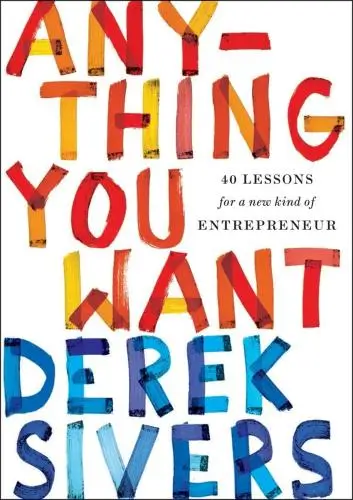
Anything You Want
40 Lessons for a New Kind of Entrepreneur
What's it about?
Anything You Want by Derek Sivers is a refreshingly straightforward guide on how to succeed by simply doing what you love. Sivers, the creator of CD Baby, shares his unconventional journey to business success, emphasizing that the path to achieving your dreams doesn't have to be complex. This book is packed with actionable advice, distilled from Sivers' own experiences, and serves as a powerful reminder that success follows passion, not the other way around. It's a must-read for anyone looking to inject more joy and authenticity into their professional life.
About the Author
Derek Sivers is an entrepreneur, author, and musician, best known for founding CD Baby, an online CD store for independent musicians. His books, including "Anything You Want," offer insights into business, life, and self-improvement, characterized by concise, thoughtful, and often unconventional perspectives. Sivers emphasizes simplicity and effectiveness in achieving one's goals.
10 Key Ideas of Anything You Want
Embrace Your Unique Vision and Ignore the Norm
Pursue what makes you passionate instead of following conventional paths to success.
Your unique vision is what sets you apart and can lead to creating something truly valuable and fulfilling.
By focusing on what excites you, rather than what you think will be most profitable or popular, you're more likely to innovate and create something that resonates deeply with a specific audience.
This approach fosters authenticity and can lead to a more dedicated customer base.
Learn DeeperIdentify Your Passion: Spend time reflecting on what activities or topics you lose yourself in. What could you spend hours doing without feeling tired? This is often a good indicator of your passion.
Set Aside Time for Exploration: Dedicate a portion of your week to exploring your interests further. This could be through reading, taking online courses, or experimenting with new projects related to your passion.
Create a Vision Board: Visualize your unique vision by creating a board that represents your goals and what makes you passionate. This can serve as a constant reminder and motivation to pursue your unique path.
Seek Feedback, But Stay True: While it's important to listen to feedback, ensure it doesn't sway you from your core vision. Use it to refine your approach, not redefine it.
Start Small, Think Big: Begin with small projects or steps that align with your passion. These can serve as building blocks for larger endeavors, allowing you to gradually expand your vision without losing sight of what makes it unique.
- Example
If you're passionate about sustainable living, you might start a blog or YouTube channel sharing tips and insights on reducing waste in daily life. Over time, this could evolve into a consultancy business helping companies implement sustainable practices.
- Example
For someone who loves coding and has a unique idea for a software application, begin by developing a prototype in your free time. Share it with a small group for feedback, refine it, and eventually launch it to a wider audience, staying true to the original vision that excited you.
Customer Service as a Core Business Strategy
Treat every customer interaction as an opportunity to exceed expectations.
Exceptional customer service not only builds loyal relationships but also turns your customers into advocates for your business.
By going above and beyond in addressing their needs and concerns, you create a positive feedback loop that enhances your reputation and drives growth.
This strategy emphasizes the importance of valuing each customer, understanding that their satisfaction is integral to the long-term success of your business.
Learn DeeperRespond Promptly to Customer Inquiries: Make it a priority to answer customer questions and concerns as quickly as possible. This shows that you value their time and business.
Personalize Your Service: Whenever possible, tailor your service to meet the individual needs of your customers. Remembering details about their preferences or past interactions can make them feel valued and enhance their loyalty.
Solicit and Act on Feedback: Regularly ask for feedback from your customers and take their suggestions seriously. Implementing changes based on their input demonstrates that you are responsive and committed to continuous improvement.
Go the Extra Mile: Look for opportunities to exceed customer expectations, even in small ways. This could be anything from a handwritten thank-you note to an unexpected upgrade or discount.
Empower Your Team: Ensure that all team members understand the importance of exceptional customer service and have the authority to make decisions that will benefit the customer experience.
- Example
A coffee shop remembers a regular customer's order and starts preparing it as soon as they walk in, adding a personal touch by asking about their day.
- Example
An online retailer includes a surprise gift along with a personalized thank-you note in orders over a certain amount, making customers feel appreciated and encouraging repeat business.
Simplify to Amplify: The Power of Doing Less
Focus on doing fewer things but doing them exceptionally well.
Spreading yourself too thin dilutes your efforts and can lead to mediocrity across the board.
By concentrating on a narrower range of products or services, you can allocate more resources and attention to perfecting them.
This approach allows for deeper expertise, better quality, and stronger differentiation in the market.
Simplification also makes it easier for customers to understand and engage with your offerings.
Learn DeeperIdentify Your Core Offerings: Take a step back and evaluate what products, services, or skills you have that truly stand out. Focus on these and consider cutting down on the rest.
Allocate Resources Wisely: Once you've identified your core offerings, redirect your time, energy, and investments towards perfecting them. This might mean improving the quality, making them more user-friendly, or innovating in ways that set you apart.
Simplify Your Message: Craft clear and concise messaging around your offerings. This makes it easier for your audience to understand what you do best and why they should choose you over competitors.
Seek Feedback and Iterate: Regularly seek feedback from your customers or audience on your focused offerings. Use this feedback to make continuous improvements, ensuring you're always offering the best possible solution.
Educate Your Audience: Use your expertise in your narrowed focus to educate your audience. This could be through blog posts, tutorials, or webinars. Positioning yourself as an expert in a specific area can attract more loyal customers.
- Example
A local bakery that used to offer a wide range of pastries decides to focus solely on artisan breads. By doing so, they're able to experiment with unique recipes, source higher-quality ingredients, and ultimately become known as the go-to place for artisan bread in their community.
- Example
A freelance graphic designer who offered a broad range of design services narrows their focus to logo and brand identity design. This allows them to deepen their expertise in this area, build a stronger portfolio, and attract clients specifically looking for high-quality branding services.
Let Your Business Grow Naturally
Resist the pressure to scale quickly.
Organic growth ensures that expansion is sustainable and aligned with your capabilities and mission.
Forced growth can strain resources, dilute your brand, and lead to compromises that betray your original vision.
By allowing your business to grow at its own pace, you maintain control and ensure that each step forward is solidly grounded.
This method values long-term stability over short-term gains.
Learn DeeperEvaluate Your Growth: Regularly assess your business's growth, ensuring it aligns with your capabilities and mission. Avoid making decisions based solely on external pressures or trends.
Focus on Your Core Values: Make decisions that reinforce the core values of your business. This helps maintain your brand's integrity and ensures that any growth is true to your original vision.
Engage with Your Community: Build a strong relationship with your customers or audience. Their feedback can guide organic growth and help you understand when and how to expand effectively.
Monitor Your Resources: Keep a close eye on your financial and human resources. Ensure that you have the capacity to support growth without overextending your current capabilities.
Be Patient: Understand that meaningful growth takes time. Resist the urge to rush the process for the sake of expansion. Patience ensures that when opportunities arise, you're fully prepared to take them on.
- Example
A small, family-owned restaurant chooses to expand its seating area only after consistently turning away customers due to lack of space, ensuring they maintain the quality of their food and service.
- Example
An independent software developer turns down venture capital funding to retain full control over their project, choosing instead to grow their user base organically through word-of-mouth and community engagement.
Profit Is Not the Ultimate Goal
Redefine success beyond financial gain.
While profitability is important for sustainability, measuring success solely by profit margins overlooks the value of impact, fulfillment, and personal happiness.
A business should serve as a means to achieve your life goals and contribute positively to the world.
By prioritizing purpose over profit, you create a more meaningful enterprise that reflects your values and has the potential to leave a lasting legacy.
Learn DeeperReflect on Your Values: Take some time to think about what truly matters to you. What are your core values? How can your business or career align with these values? This reflection will help guide your decisions and ensure your work is meaningful to you.
Set Purpose-Driven Goals: Instead of focusing solely on financial targets, set goals that reflect your mission and the impact you want to make. Whether it's improving your community, advancing a cause you care about, or creating a positive work culture, let these purpose-driven goals motivate you.
Measure Impact Beyond Profit: Develop metrics to measure the success of your business or projects beyond just financial gain. This could include customer satisfaction, environmental impact, social change, or personal growth. Tracking these metrics will give you a fuller picture of your success.
Seek Fulfillment in Your Work: Look for ways to find joy and fulfillment in the process of your work, not just the outcomes. This could mean taking on projects that challenge you, working with people who inspire you, or finding moments of creativity and flow in your day-to-day tasks.
Share Your Vision: Communicate your values and purpose with your team, customers, and community. Sharing your vision can inspire others, attract like-minded individuals, and build a supportive network around your business or career.
- Example
A coffee shop owner who prioritizes community engagement over maximizing profits might host free local art events and workshops in their space, fostering a sense of community and supporting local artists, while still running a profitable business.
- Example
A tech entrepreneur focused on environmental sustainability might develop an app that helps users reduce their carbon footprint. While the app could be monetized through partnerships or premium features, its primary goal is to make a positive impact on the environment.
Deeper knowledge. Personal growth. Unlocked.
Unlock this book's key ideas and 15M+ more. Learn with quick, impactful summaries.
Read Full SummarySign up and read for free!
Anything You Want Summary: Common Questions
"Ideas are just a multiplier of execution." This powerful quote from Derek Sivers' book Anything You Want immediately drew me in as it challenged my perspective on the value of ideas versus their implementation. Sivers emphasizes the importance of taking action and turning thoughts into reality, rather than getting lost in the ideation phase.
The book is a succinct and insightful read that delves into Sivers' journey of building a successful business and the unconventional lessons he learned along the way. His unorthodox approach to entrepreneurship, such as prioritizing customer experience over profit, left me both inspired and intrigued, making me reflect on my own beliefs about business and success.
Anything You Want is a refreshing take on entrepreneurship and life in general, offering valuable lessons in a concise and engaging manner. I highly recommend it to anyone looking for a different perspective on business, creativity, and decision-making processes.
Experience Personalized Book Summaries, Today!
Discover a new way to gain knowledge, and save time.
Sign up for our 7-day trial now.
No Credit Card Needed

Similar Books

$100M Offers
Alex Hormozi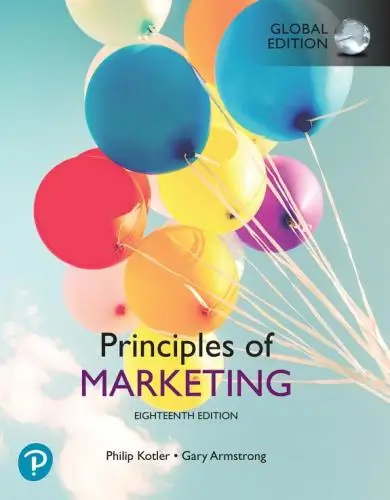
Principles of Marketing, Global Edition
Gary Armstrong
The 100 Best Business Books of All Time
Jack Covert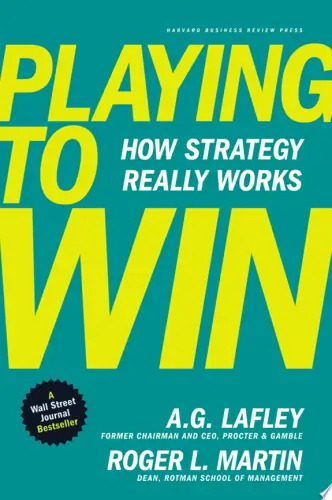
Playing to Win
A.G. Lafley
Productize
Eisha Armstrong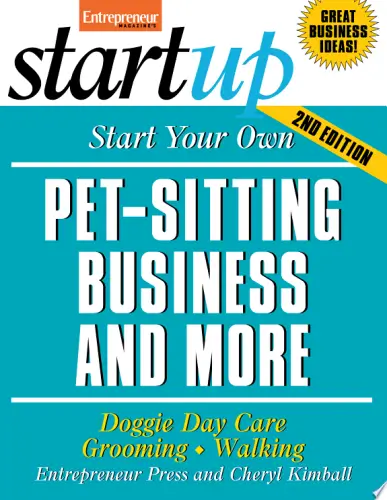
Start Your Own Pet-Sitting Business and More
Entrepreneur Press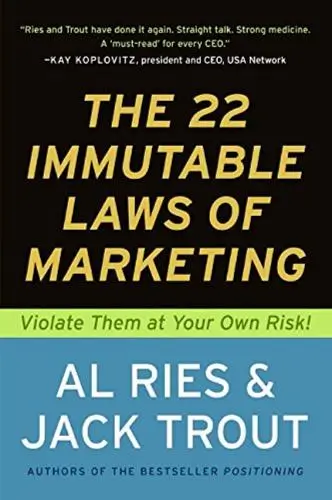
The 22 Immutable Laws of Marketing
Al Ries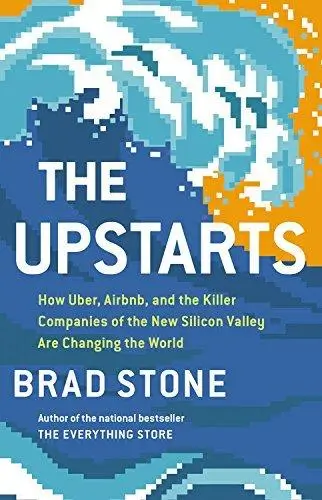
The Upstarts
Brad Stone
Lean Analytics
Alistair Croll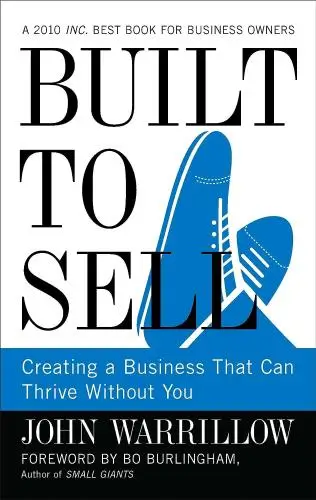
Built to Sell
John WarrillowTrending Summaries

Peak
Anders Ericsson
Never Split the Difference
Chris Voss
Smart Brevity
Jim VandeHei
The Psychology of Money
Morgan Housel
The First 90 Days
Michael D. Watkins
Atomic Habits
James Clear
Thinking, Fast and Slow
Daniel Kahneman
The Body Keeps the Score
Bessel van der Kolk M.D.
The Power of Regret
Daniel H. Pink
The Compound Effect
Darren HardyNew Books

The White Night of St. Petersburg
Michel (Prince of Greece)
Demystifying Climate Models
Andrew Gettelman
The Hobbit
J.R.R. Tolkien
The Decision Book
Mikael Krogerus
The Decision Book: 50 Models for Strategic Thinking
Mikael Krogerus
Fichte
Johann Gottlieb Fichte
Do No Harm
Henry Marsh
This is Going to Hurt
Adam Kay
This Is Your Brain on Joy
Earl Henslin
